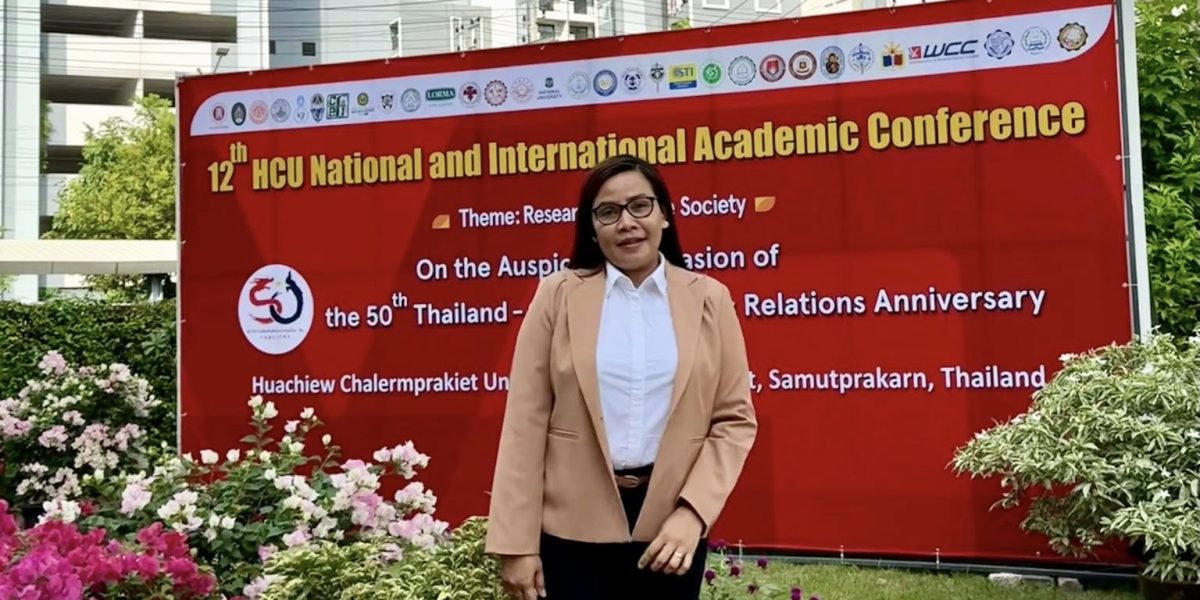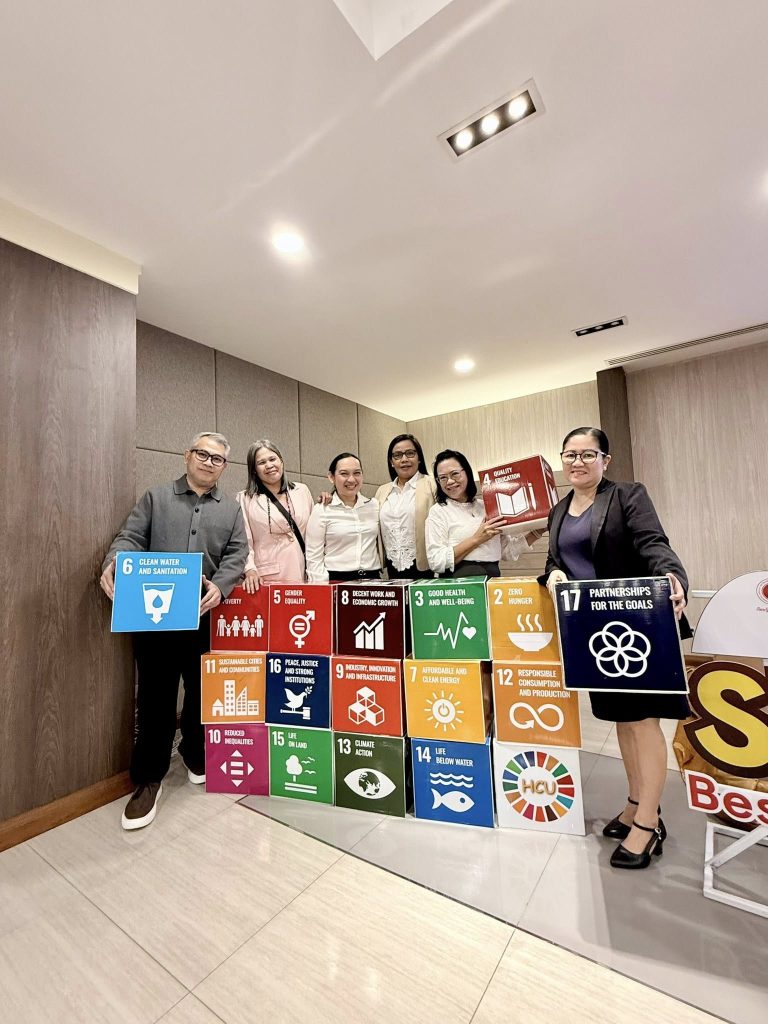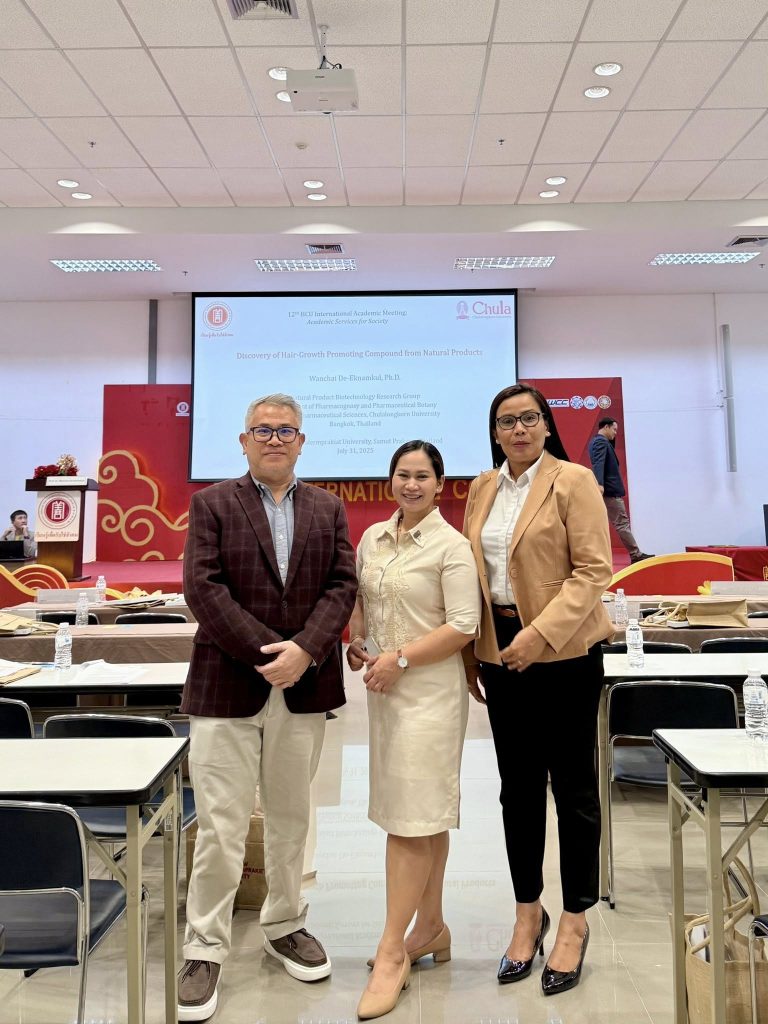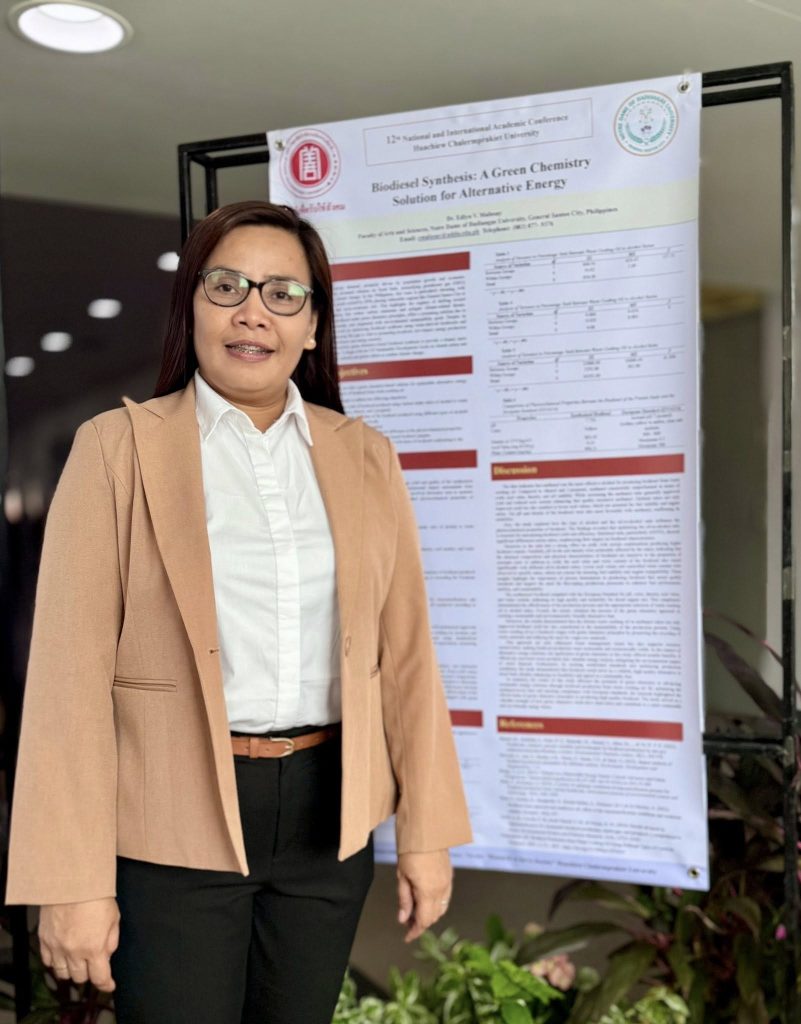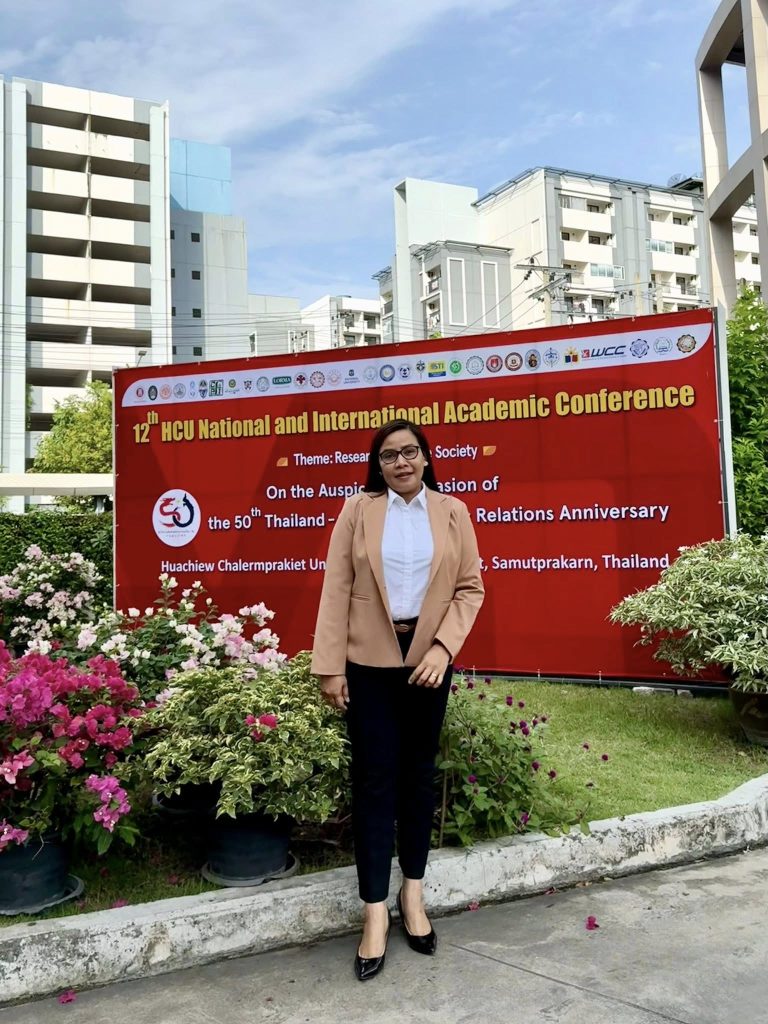𝘉𝘢𝘯𝘨𝘱𝘩𝘭𝘪 𝘋𝘪𝘴𝘵𝘳𝘪𝘤𝘵, 𝘚𝘢𝘮𝘶𝘵𝘱𝘳𝘢𝘬𝘢𝘳𝘯, 𝘛𝘩𝘢𝘪𝘭𝘢𝘯𝘥 – 𝘑𝘶𝘭𝘺 31, 2025
Promoting sustainable energy solutions through scientific innovation, 𝗗𝗿. 𝗘𝗱𝗹𝘆𝗻 𝗩. 𝗠𝗮𝗹𝘂𝘀𝗮𝘆, Associate Professor of the Notre Dame of Dadiangas University (NDDU), showcased her research poster titled “𝘽𝙞𝙤𝙙𝙞𝙚𝙨𝙚𝙡 𝙎𝙮𝙣𝙩𝙝𝙚𝙨𝙞𝙨: 𝘼 𝙂𝙧𝙚𝙚𝙣 𝘾𝙝𝙚𝙢𝙞𝙨𝙩𝙧𝙮 𝙎𝙤𝙡𝙪𝙩𝙞𝙤𝙣 𝙛𝙤𝙧 𝘼𝙡𝙩𝙚𝙧𝙣𝙖𝙩𝙞𝙫𝙚 𝙀𝙣𝙚𝙧𝙜𝙮” during the 12th Huachiew Chalermprakiet University (HCU) International Conference, co-hosted by NDDU, held on July 30–31, 2025 in Thailand.
Her study explored the conversion of waste cooking oil into biodiesel using a base-catalyzed transesterification process involving three types of alcohols—methanol, ethanol, and 2-propanol. The research aimed to identify which alcohol and reaction conditions yield the most efficient and environmentally sound biodiesel production.
Findings revealed that methanol achieved the highest biodiesel yield of up to 98%, producing fuel with favorable properties such as a low acid value and optimal pH. Ethanol and 2-propanol, however, produced lower yields and less desirable characteristics under the same conditions. The results underscored methanol’s potential as a more effective agent for biodiesel synthesis, highlighting how green chemistry can optimize renewable fuel production while minimizing waste.
Dr. Malusay emphasized that by refining the methanol-to-oil ratio, producers can enhance both the quantity and quality of biodiesel, contributing to a more sustainable, low-carbon energy future. Her study aligns with 𝙎𝙪𝙨𝙩𝙖𝙞𝙣𝙖𝙗𝙡𝙚 𝘿𝙚𝙫𝙚𝙡𝙤𝙥𝙢𝙚𝙣𝙩 𝙂𝙤𝙖𝙡 (𝙎𝘿𝙂) 7 – 𝘼𝙛𝙛𝙤𝙧𝙙𝙖𝙗𝙡𝙚 𝙖𝙣𝙙 𝘾𝙡𝙚𝙖𝙣 𝙀𝙣𝙚𝙧𝙜𝙮 𝙖𝙣𝙙 𝙎𝘿𝙂 13 – 𝘾𝙡𝙞𝙢𝙖𝙩𝙚 𝘼𝙘𝙩𝙞𝙤𝙣, reinforcing the global shift toward renewable energy and environmental responsibility.
As a poster presenter, Dr. Malusay joined researchers from across Asia in sharing innovative solutions to pressing environmental and technological challenges. Her participation demonstrated NDDU’s growing commitment to research excellence and international collaboration, particularly in advancing green technologies and sustainability-driven studies that serve both local and global communities.
Through this research, NDDU continues to strengthen its role in the global pursuit of sustainable development—proving that scientific innovation and environmental stewardship can go hand in hand in shaping a cleaner, greener future.


